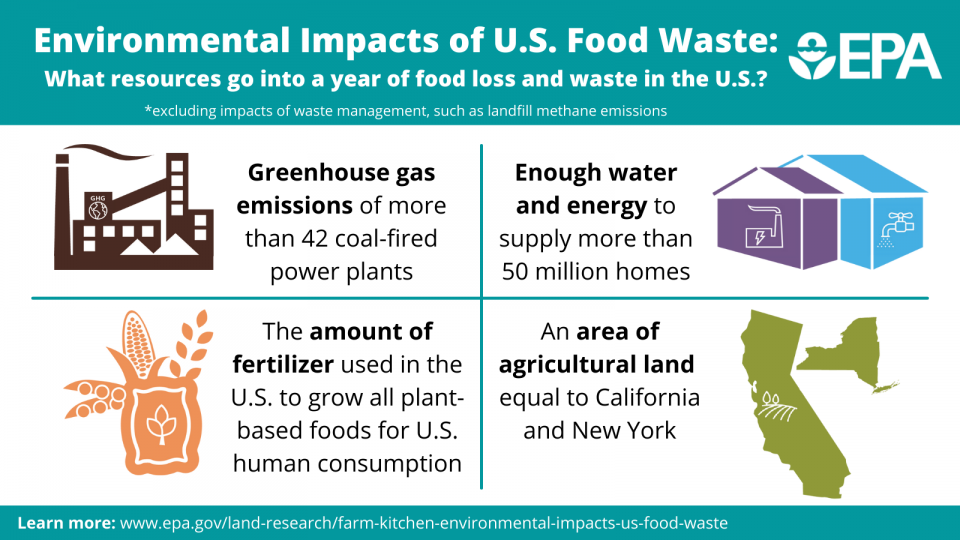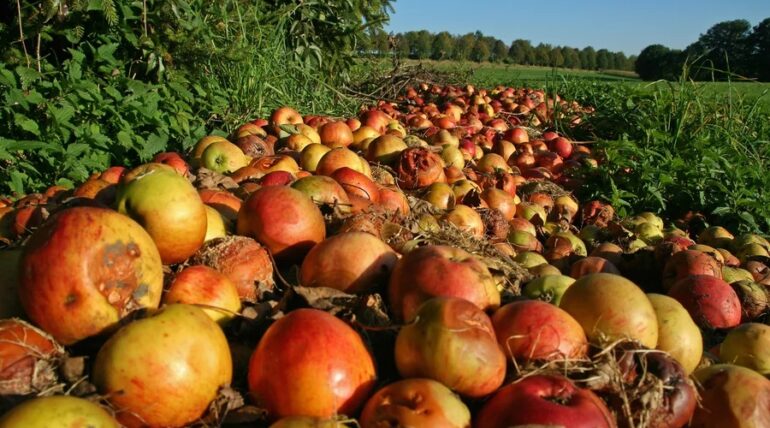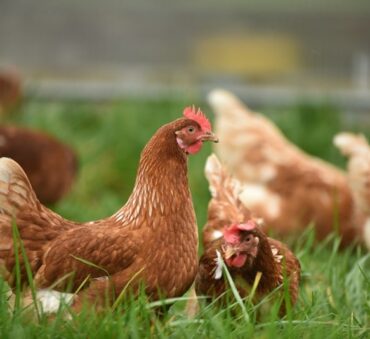There’s no hiding that the problem of food waste is getting worse. But how does food waste affect the environment specifically?
The impact that food waste has on our environment is becoming increasingly concerning. Food waste contributes to greenhouse gas emissions, pollution, and has a negative effect on biodiversity. Food waste also impacts the economy, with 133 billion pounds of food wasted annually, valued at roughly $161 billion.
The global impact shows an alarming 1.3 billion tons of food wasted annually. That is roughly $1 trillion lost to food waste.
In this article, we will learn more about how food waste affects the environment.
What is food waste?
Food waste is when either spoiled or edible food is disposed of during any stage of the food supply. This can happen during food production, processing, distribution, or consumption.
How does food waste affect the environment?
When food goes to waste, it causes significant harm to the environment. Food waste’s negative impact contributes to greenhouse gas emissions, climate change, air, water pollution, and so much more. In this section, we will explore the harmful effects of food waste on the environment.

1. Contribution to Greenhouse Gases
Food waste that ends up in landfills decomposes anaerobically, which causes the production of greenhouse gases, such as methane gas. This dangerous gas aggravates greenhouse effects more than carbon dioxide causes.
2. Waste of Natural Resources
Food waste in landfills contributes to natural resources, highlighted below, being squandered during all food chain processes.
- Water: With existing water shortages already causing concern, food waste exasperates this even further. It is used for irrigation, livestock, and food production can be considered a waste and a significant loss.
- Land: When food is wasted, the agricultural land used for cultivation goes to waste. With existing issues such as land shortage that impacts the ecosystem, food waste escalates the situation further.
- Energy: Energy used for machinery throughout the food chain process also goes to waste. The focus should be on conserving energy, as wasted energy negatively impacts greenhouse gas emissions.
3. Contribution to Climate Change
Food in landfills produces dangerous greenhouse gases, significantly contributing to climate change issues such as rising temperatures and extreme weather patterns.
4. Degradation of Land
The food production process does contribute to land degradation, such as soil erosion due to intensive farming and deforestation for agricultural purposes.
5. Loss of Biodiversity
Food waste impacts biodiversity through several interconnected mechanisms, one of which is habitat destruction. Due to deforestation for agricultural purposes, the wildlife in the area has reduced space to exist, consequently leading to the loss of animal species.
Excessive organic waste negatively impacts soil health and nutrient availability, leading to a reduction in plant diversity. This decline in plant variety has far-reaching consequences on the food chain, affecting insects and animals that rely on these plants for sustenance.
6. Air & Water Pollution
Food waste negatively impacts air and water quality in the surrounding areas of landfills. Food waste in landfills releases methane gases during decomposition, causing unpleasant odors and air pollution in the area.
It also affects the water as it is contaminated by bacteria and other microorganisms, posing dangers to human consumption and risking aquatic life in the area.

Environmental Impact of Food Waste in America
The environmental impact of food waste in America raises some alarming statistics.
It is estimated that 40 percent of the US food supply goes to waste annually. That is roughly 325 pounds of waste per person per year!
The economic implications of food waste are staggering, with a substantial number of resources, totaling $218 billion, lost annually due to this issue. Moreover, an estimated 130 billion meals go to waste each year, further aggravating the environmental consequences.
Why should we reduce food waste?
Reducing food waste through competent food waste management has a positive effect on saving the environment. It reduces food waste going to landfills, minimizes the methane emissions from landfills, and assists in fighting climate control.
Taking proper care of wasted food also allows for conserving natural resources, as fewer agricultural expansions are needed, safeguarding the natural habitats of animals and protecting the plants in the area. This not only promotes water and energy conservation but also enables sustainable water management, facilitating the equitable distribution of water to areas with greater needs. Additionally, it helps reduce overall energy consumption and encourages more efficient energy usage.
Lastly, decreasing food waste can place more focus on improving food access, alleviating the global hunger crisis, and redirecting edible food to those in need. Even taking the time to learn how does food waste affect the environment is as important.
Solutions to the Problem of Food Waste
There are solutions in place to address food waste in the US. This includes partnering with waste management companies that responsibly and effectively care for all food waste.
Shapiro plays a significant role in addressing the food waste problem in America, with specialized food waste recycling solutions to reduce food waste ending up in landfills and lowering the risks that food waste has on the environment. Give us a call and start saving the environment today!
Baily Ramsey, an accomplished marketing specialist, brings a unique blend of anthropological insight and marketing finesse to the digital landscape. Specializing in educational content creation, she creates content for various industries, with a particular interest in environmental initiatives.



